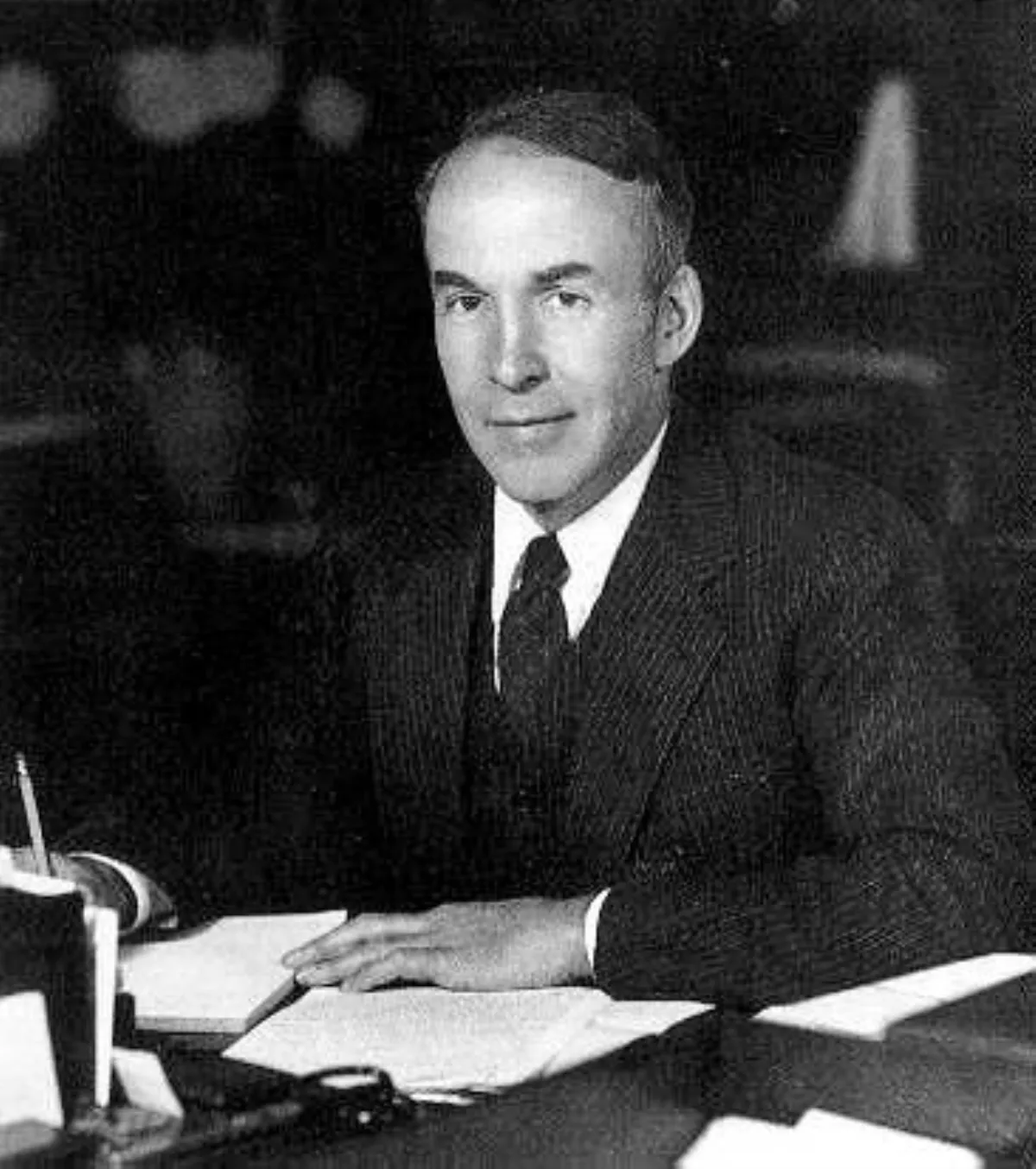 1.
1. Archibald MacLeish was an American poet and writer, who was associated with the modernist school of poetry.

 1.
1. Archibald MacLeish was an American poet and writer, who was associated with the modernist school of poetry.
Archibald MacLeish enlisted in and saw action during the First World War and lived in Paris in the 1920s.
For five years, MacLeish was the ninth Librarian of Congress, a post he accepted at the urging of President Franklin D Roosevelt.
Archibald MacLeish was awarded three Pulitzer Prizes for his work.
Archibald MacLeish was born on May 7,1892, in Glencoe, Illinois.
Archibald MacLeish's father, Scottish-born Andrew MacLeish, worked as a dry-goods merchant and was a founder of the Chicago department store Carson Pirie Scott.
Archibald MacLeish's mother, Martha, was a college professor and had served as president of Rockford College.
Archibald MacLeish grew up on an estate bordering Lake Michigan.
Archibald MacLeish attended the Hotchkiss School from 1907 to 1911.
Archibald MacLeish then enrolled in Harvard Law School, where he served as an editor of the Harvard Law Review.
Archibald MacLeish's studies were interrupted by World War I, in which he served first as an ambulance driver and later as an artillery officer.
Archibald MacLeish fought at the Second Battle of the Marne.
Archibald MacLeish graduated from law school in 1919, taught law for a semester for the government department at Harvard, then worked briefly as an editor for The New Republic.
Archibald MacLeish expressed his disillusion with war in his poem Memorial Rain, published in 1926.
In 1923, Archibald MacLeish left his law firm and moved with his wife to Paris, where they joined the community of literary expatriates that included such members as Gertrude Stein and Ernest Hemingway.
In 1932, Archibald MacLeish published his long poem "Conquistador", which presents Cortes's conquest of the Aztecs as symbolic of the American experience.
In 1938, Archibald MacLeish published as a book a long poem "Land of the Free", built around a series of 88 photographs of the rural depression by Dorothea Lange, Walker Evans, Arthur Rothstein, Ben Shahn, and the Farm Security Administration and other agencies.
Archibald MacLeish sought support from expected places such as the president of Harvard, Archibald MacLeish's current place of work, but found none.
Archibald MacLeish was sworn in as Librarian of Congress on July 10,1939, by the local postmaster at Conway, Massachusetts.
Archibald MacLeish became privy to Roosevelt's views on the library during a private meeting with the President.
Archibald MacLeish then set about setting up various committees on various projects, including acquisitions policy, fiscal operations, cataloging, and outreach.
Archibald MacLeish solved the problem of acquisitions and cataloging through establishing another committee instructed to seek advice from specialists outside of the Library of Congress.
Archibald MacLeish divided the library's functions into three departments: administration, processing, and reference.
Last, but not least, Archibald MacLeish promoted the Library of Congress through various forms of public advocacy.
Archibald MacLeish resigned as Librarian of Congress on December 19,1944, to take up the post of Assistant Secretary of State for Public Affairs.
Archibald MacLeish assisted with the development of the new "Research and Analysis Branch" of the Office of Strategic Services, the precursor to the Central Intelligence Agency.
In 1949, Archibald MacLeish became the Boylston Professor of Rhetoric and Oratory at Harvard University.
Archibald MacLeish held this position until his retirement in 1962.
In 1969, Archibald MacLeish met Bob Dylan, and asked him to contribute songs to Scratch, a musical Archibald MacLeish was writing, based on the story "The Devil and Daniel Webster" by Stephen Vincent Benet.
Archibald MacLeish was the literary figure who played the most important role in Ezra Pound's release from St Elizabeths Hospital in Washington, DC, where he was held between 1946 and 1958, after being found unfit to stand trial for high treason.
Archibald MacLeish himself was greatly involved in public life and came to believe that this was not only an appropriate, but an inevitable role for a poet.
Archibald MacLeish turned in his poem on time and entitled it 'Voyage to the Moon.
However, Archibald MacLeish was happy that having Auslander in the post attracted many other poets, such as Robinson Jeffers and Robert Frost, to hold readings at the library.
Archibald MacLeish set about establishing the consultantship as a revolving post rather than a lifetime position.
In 1943, Archibald MacLeish displayed his love of poetry and the Library of Congress by naming Louise Bogan to the position.
Two collections of Archibald MacLeish's papers are held at the Yale University Beinecke Rare Book and Manuscript Library.
Archibald MacLeish had three children: Kenneth, Mary Hillard, and William, the author of a memoir of his father, Uphill with Archie.